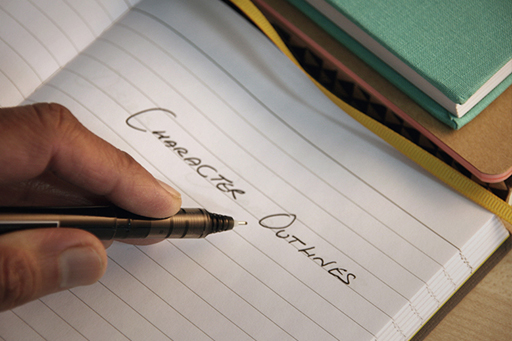6.1.2 Building a new character

Learning as much as you can about your characters is important, even if all that you learn doesn’t make it into the eventual story.
Monique Roffey is not alone in collecting information for character outlines. This is what Novakovich says about writers working with a character (this extract is also available as a PDF [Tip: hold Ctrl and click a link to open it in a new tab. (Hide tip)] for your convenience)
Working with character
To work with a character, you might need to sketch it in several ways. You could start with this questionnaire (or make one up for yourself): Name? Age? Place of birth? Residence? Occupation? Appearance? Dress? Strengths? Weakness? Obsessions? Ambition? Work habits? Hobbies? Illness? Family? Parents? Kids? Siblings? Friends? Pets? Politics? Tics? Diet? Drugs? Favorite kinds of coffee, cigarettes, alcohol? Erotic history? Favorite books, movies, music? Desires? Fears? Most traumatic event? Most wonderful experience? The major struggle, past and present?
If you give quick, spontaneous answers, you might surprise yourself with the character that emerges. Don’t worry if this works like a Rorschach blot, if it reveals something about you. You might do it in a silly way, have fun, and still get an idea for a character. And you might do it quite thoughtfully, in relation to your plot, if you’ve chosen one. (Let’s say, your plot involves a son who gambles away his patrimony, until he becomes a father, and then works so hard to leave his son with a patrimony that he doesn’t spend any time with him, and his son disowns him. You must devise character traits that would make him plausible.) If you don’t have a plot yet, some of the answers to these questions, particularly the last one – the character’s major struggle – might give you ideas.
Once you know almost enough – you hardly ever know enough – about the character, test her out. Portray her.
In your notebook, try Roffey’s and Novakovich’s methods of building character outlines to flesh out your character. See how much you can discover about them.
Use headings such as these, or Novakovich’s, for your character outline – or, as he suggests, make up your own:
- Physical/biological: age, height, size, state of health, assets, flaws, sexuality, gait, voice.
- Psychological: intelligence, temperament, happiness/unhappiness, attitudes, self-knowledge, unconscious aspects.
- Interpersonal/cultural: family, friends, colleagues, birthplace, education, hobbies, beliefs, values, lifestyle.
- Personal history: major events in their life, including the best and the most traumatic times.
Don’t write any more than outline notes for the moment. You will use this character profile later so make sure you know where to find it.
You can use this as an ongoing method – creating a profile with headings such as these – and it will help you to research and build your characters.
